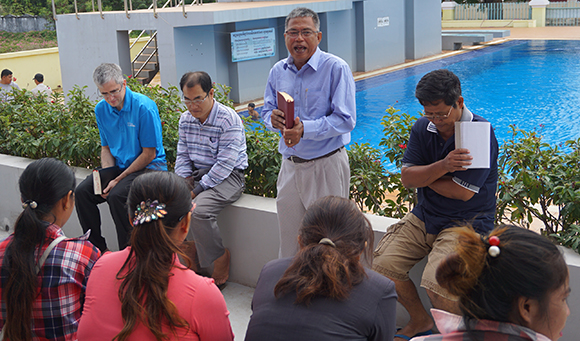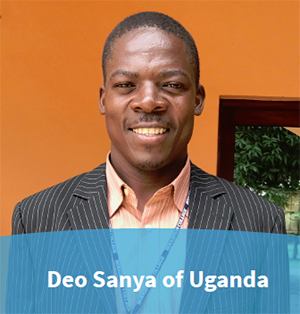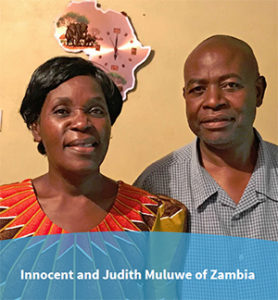
Catalysts for Amplifying Leaders
The North American Wesleyan Church places a high value on an educated clergy. They expect their pastors to have biblical knowledge, possess holy character, and develop practical skills for ministry. The church’s ministers-in-training have several pathways provided to them in order to receive the formal education required to become an ordained minister.
This is not the reality for most of The Wesleyan Church outside North America. Approximately 80% of global Wesleyan churches are led by pastors who are not ordained because there are few viable options available to ministerial students. Religious, political, social, and/or other issues can block their training. Even when ministerial education is available, it is often inaccessible to the older, mature student who has a family and work responsibilities. It is not easy to displace them–sometimes to an entirely new culture and language–into a residential ministerial program.
North American churches can amplify their mission by serving as catalysts to increase the training capacity of the global church. As a giver or sender, a local North American church can help impact global transformation, as seen by the following examples.
DEVELOPING TRAINING PROGRAMS
The Wesleyan Church in Cambodia needs ministerial leaders who are trained locally so students do not have to leave their villages and jobs. Also, traditional North American methodologies do not work well with Cambodians because they come from an oral society. To navigate these challenges, The Wesleyan Church of Cambodia, Global Partners, and Wesley Seminary have collaborated to develop a training program that includes teaching videos and mentoring. Creating an oral pathway of training will better equip Cambodian leaders for moving their church into an era of revitalization and growth.
GIVING TOWARD TRAINING LEADERS
 Deo Sanya in Uganda loved school. It was a bitter pill for him to swallow when he was not able to continue his studies as a teen because there was no money for his school fees. A few years later, Deo discovered new life in Christ and began to thrive in his church community. Church leaders saw Deo’s potential to be a pastor. Understanding the need and value of theological training, the Ugandan church sent Deo, along with two other men, to Pilgrim Wesleyan Bible College in Zambia. Deo graduated in 2016, and he now teaches other pastors at Uganda’s new training school, the Wesleyan Bible Institute.
Deo Sanya in Uganda loved school. It was a bitter pill for him to swallow when he was not able to continue his studies as a teen because there was no money for his school fees. A few years later, Deo discovered new life in Christ and began to thrive in his church community. Church leaders saw Deo’s potential to be a pastor. Understanding the need and value of theological training, the Ugandan church sent Deo, along with two other men, to Pilgrim Wesleyan Bible College in Zambia. Deo graduated in 2016, and he now teaches other pastors at Uganda’s new training school, the Wesleyan Bible Institute.
 Last year, Innocent and Judith Muluwe, both professionals and trained teachers, moved to their family farm in eastern Zambia to retire. They discovered that many in their area do not attend the church in town because the distance is too far. Concerned for their neighbors, the Muluwes are dreaming of planting a church, but they are getting training in Bible and theology first. Together, they will serve their rural community.
Last year, Innocent and Judith Muluwe, both professionals and trained teachers, moved to their family farm in eastern Zambia to retire. They discovered that many in their area do not attend the church in town because the distance is too far. Concerned for their neighbors, the Muluwes are dreaming of planting a church, but they are getting training in Bible and theology first. Together, they will serve their rural community.
BECOMING A TRAINER
In recent years, Dr. Richard Schenck of Lakeview Drive Wesleyan Church (Crossroads District, Indiana) has traveled to Asia to teach short, intensive courses in Bible and theology. Other trainers, including professors from our Wesleyan universities, partner with the global Wesleyan Church to teach modules at national Bible training institutions. Through training, local pastors get the education required for ordination, and in turn, these local church leaders become ministerial trainers.
There is an African proverb that says, “If you want to go faster, go alone. If you want to go farther, go with others.” Walking together with the international church to enhance their training options for amplifying their leaders will give all of us greater Kingdom-building impact.
For more information, go to gponline.org/AmplifiedLeaders.
